How to Become an Information Technology Specialist in 2024: A Guide
According to the Bureau of Labor Statistics, employment in computer and information technology occupations is projected to grow 11% from 2019 to 2029, much faster than the average for all occupations.
In today's digital age, Information Technology (IT) is the backbone of every industry. According to the Bureau of Labor Statistics, employment in computer and information technology occupation is projected to grow 11% from 2019 to 2029, much faster than the average for all occupations. This growth highlights the increasing demand for IT specialists who can help organizations manage and optimize their technology infrastructure.
But what exactly does it take to become an IT specialist? This comprehensive guide will walk you through the essential steps and skills needed to embark on this rewarding career path.
In this blogpost:
- What is an IT specialist?
- What do IT specialists do?
- 6 steps to become an information technology specialist
- Information technology specialist skills
- Career paths in information technology
- Average salary of information technology specialist in India
What is an IT Specialist?
An Information Technology (IT) Specialist is a professional responsible for managing and troubleshooting computer systems, networks, and software applications within an organization. IT specialists play a crucial role in ensuring that technological systems run smoothly and efficiently. They can work in various sectors, including healthcare, finance, government, and education, providing technical support and implementing IT solutions that enhance productivity and security.
What Do IT Specialists Do?
IT specialists perform a wide range of tasks depending on their area of expertise and the needs of their organization. Some common responsibilities include:
- Network Management: Configuring, managing, and troubleshooting network hardware and software to ensure seamless connectivity.
- System Administration: Installing, updating, and maintaining operating systems and server software.
- Cybersecurity: Implementing security measures to protect data from unauthorized access, cyberattacks, and other threats.
- Technical Support: Assisting users with hardware and software issues, providing solutions and guidance to resolve technical problems.
- Database Management: Designing, implementing, and managing databases to store and organize data efficiently.
- Software Development: Writing, testing, and debugging software applications to meet the needs of the organization.
6 Steps to Become an Information Technology Specialist
Earn an Associate’s or Bachelor’s Degree in a Related Field
The first step in becoming an IT specialist is to obtain a formal education. While some IT positions may require only an associate’s degree, most employers prefer candidates with a bachelor’s degree in a related field, such as computer science, information technology, or network administration. These programs provide foundational knowledge in areas like programming, database management, and cybersecurity. Some of the bachelor’s degrees you might consider are:
- Bachelor of Science in Computer Science
- Bachelor of Science in Information Technology
- Bachelor of Science in Network Administration
- Bachelor of Science in Cybersecurity
- Bachelor of Science in Software Engineering
Become Familiar with Popular Operating Systems
IT specialists must be proficient in using and managing various operating systems. The most commonly used operating systems in the industry are Windows, macOS, and Linux. Familiarity with these systems enables IT specialists to configure, troubleshoot, and maintain different types of hardware and software environments.
Learn at Least One Programming Language
Programming skills are essential for IT specialists, as they enable professionals to develop software, automate tasks, and solve complex problems. Popular programming languages include Python, Java, C++, and JavaScript. Learning at least one of these languages will provide a competitive edge and open up more career opportunities. These skills can be acquired through college courses, online tutorials, coding bootcamps, and hands-on practice with personal projects or open-source contributions.
Consider Attending a Bootcamp Course
For those looking to quickly gain practical skills, attending a coding boot camp can be an excellent option. Bootcamps are intensive, short-term programs that focus on specific areas of IT, such as web development, data science, or cybersecurity. They often provide hands-on training and real-world projects, which can be beneficial for building a strong portfolio.
Earn At Least One IT Certification
Certifications validate your skills and knowledge in specific areas of IT and are highly regarded by employers. Some of the most recognized IT certifications include:
- CompTIA A+: Entry-level certification covering essential IT skills and knowledge.
- Cisco Certified Network Associate (CCNA): Certification focusing on network installation, configuration, and troubleshooting.
- Certified Information Systems Security Professional (CISSP): Advanced certification for cybersecurity professionals.
- Microsoft Certified: Azure Fundamentals: Certification for those working with Microsoft Azure cloud services.
Consider Earning a Master’s in Information Technology
While not always necessary, earning a master’s degree in information technology can provide advanced knowledge and skills, making you a more competitive candidate for higher-level positions. Master’s programs often cover specialized areas such as data analytics, IT management, and cybersecurity, preparing you for leadership roles in the industry.
Information Technology Specialist Skills
To be successful as an IT specialist, you need a diverse set of technical and soft skills. Some of the key skills include:
- Technical Proficiency: In-depth knowledge of hardware, software, and network systems.
- Problem-solving: Ability to diagnose and resolve technical issues efficiently.
- Communication: Strong verbal and written communication skills to explain complex technical concepts to non-technical users.
- Attention to Detail: Precision in managing and configuring systems to avoid errors and ensure smooth operation.
- Project Management: Capability to manage multiple tasks and projects simultaneously, meeting deadlines and maintaining quality.
- Analytical Thinking: Ability to analyse system performance and implement improvements.
Career Paths in Information Technology
The field of information technology offers a wide range of career paths, each with its own set of responsibilities and opportunities for growth. Some of the popular career paths for IT specialists include:
Network Administrator
Network administrators manage and maintain an organization's network infrastructure. They ensure that network systems operate smoothly, perform regular updates, and troubleshoot any issues that arise. Network administrators often work with routers, switches, and other networking equipment.
Systems Analyst
Systems analysts evaluate and improve an organization's IT systems. They analyze business requirements, design new systems or enhance existing ones, and ensure that IT solutions align with the organization's goals. Systems analysts often work closely with developers and other IT professionals.
Cybersecurity Specialist
Cybersecurity specialists protect an organization's data and systems from cyber threats. They implement security measures, monitor for vulnerabilities, and respond to security incidents. Cybersecurity specialists must stay up-to-date with the latest threats and security technologies.
Database Administrator
Database administrators design, implement, and manage databases to store and organize data efficiently. They ensure data integrity, perform regular backups and optimize database performance. Database administrators often work with SQL and other database management systems.
IT Support Specialist
IT support specialists provide technical assistance to users experiencing hardware and software issues. They diagnose problems, offer solutions, and help users navigate complex systems. IT support specialists are often the first point of contact for technical support within an organization.
Software Developer
Software developers design, write, and maintain software applications. They work on everything from mobile apps to enterprise software systems. Software developers need strong programming skills and must be proficient in multiple programming languages.
Cloud Engineer
Cloud engineers design and manage cloud-based systems and services. They work with platforms like Amazon Web Services (AWS), Microsoft Azure, and Google Cloud Platform to deploy and maintain cloud infrastructure. Cloud engineers ensure that cloud services are secure, scalable, and efficient.
Average Salary of Information Technology Specialist In India
As of 2024, the average base salary for an Information Technology Specialist in India is ₹1,335,300 per year. The salary for an IT specialist can vary based on several factors, including geographical location, level of expertise, education, and experience. Companies of different sizes and industries also have differing pay scales. Here’s a breakdown:
- 10th Percentile (Lowest): ₹417,000
- Median (50th Percentile): ₹1,000,000
- 90th Percentile (Highest): ₹3,000,000
Let’s explore further:
- Entry-Level: Those with less than 1 year of experience earn an average total compensation of ₹355,051.
- Early Career (1-4 years): The average total compensation for early-career specialists is higher.
- Mid-Career: Experience pays off, with mid-career specialists earning even more.
- Late Career: Seasoned professionals see a significant increase in compensation.
There's a high demand for applicants with strong technical skills and a deep understanding of business fundamentals, indicating the increasing importance of IT specialists in the evolving job market. In addition, the shift towards remote work only heightens the demand for capable IT professionals to ensure smooth virtual operations.
Top Rated Information Technology Specialists Resumes on Resumod
Resume of Junior Network Administrator
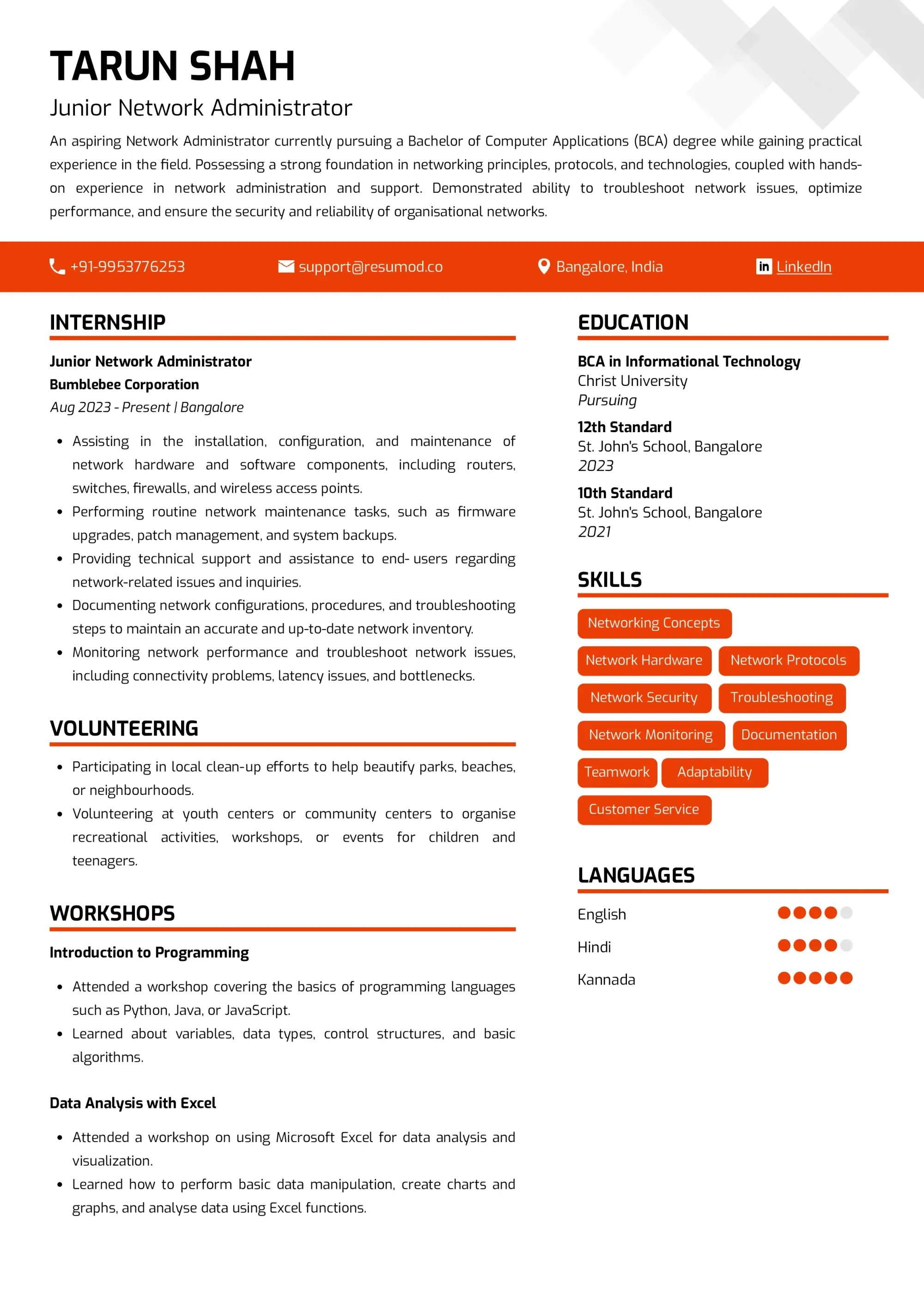
Check the full resume of junior network administrator in text format here.
Resume of Junior Cloud Engineer
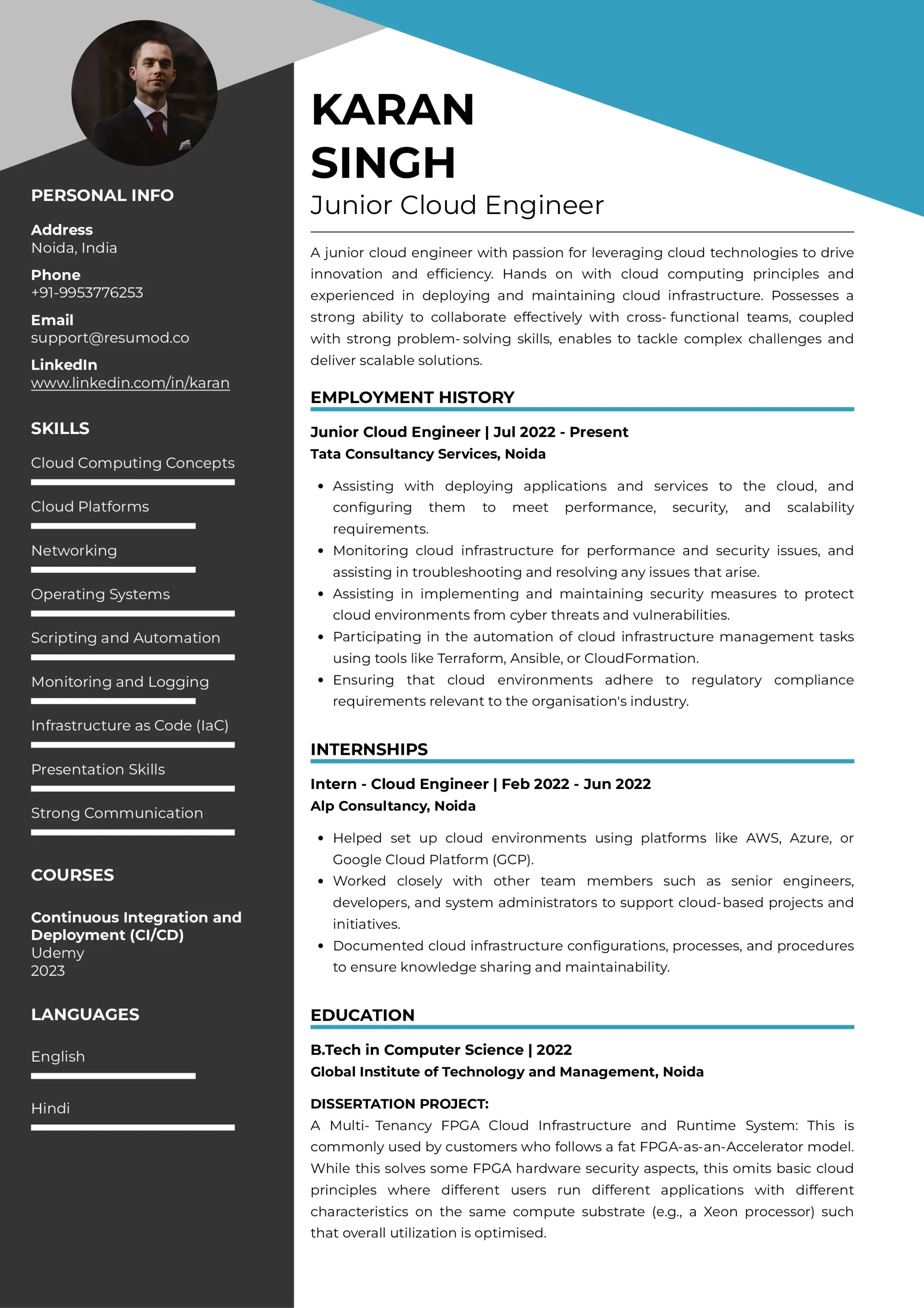
Check the full resume of junior cloud engineer in text format here.
Resume of DevOps Software Developer
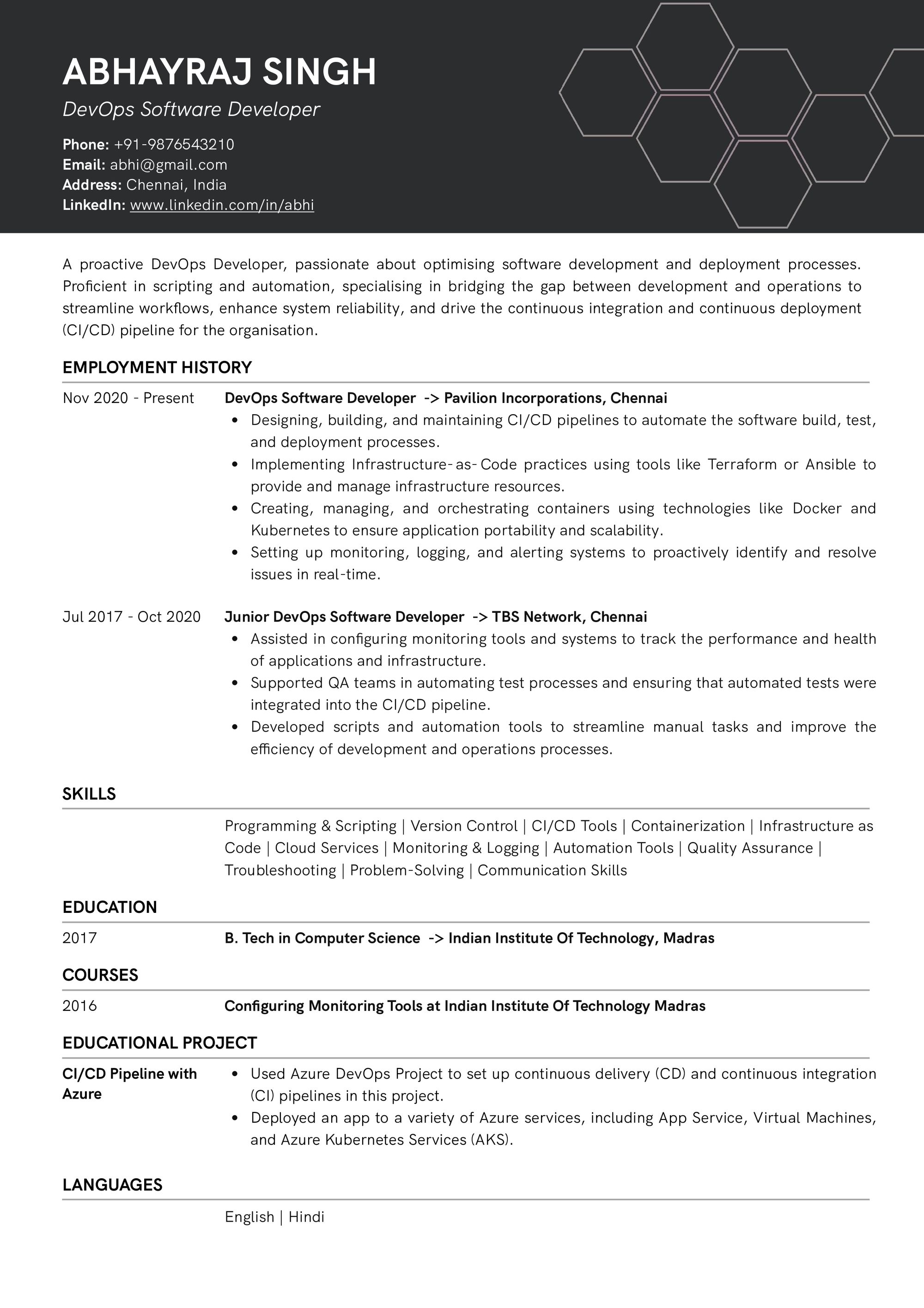
Check the full resume of DevOps software developer in text format here.
Resume of Automation Architect
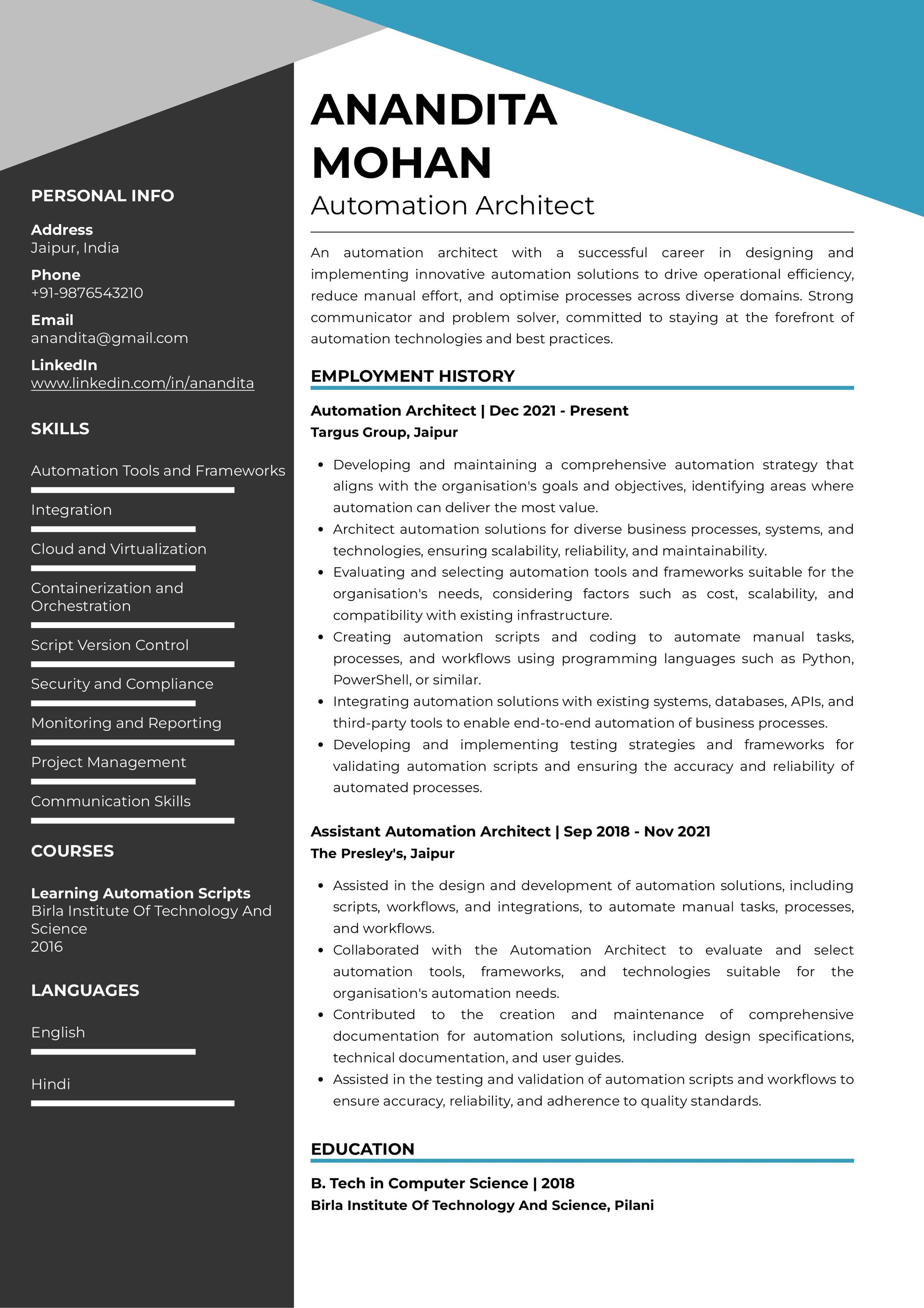
Check the full resume of automation architect in text format here.
Resume of Deep Learning Engineer
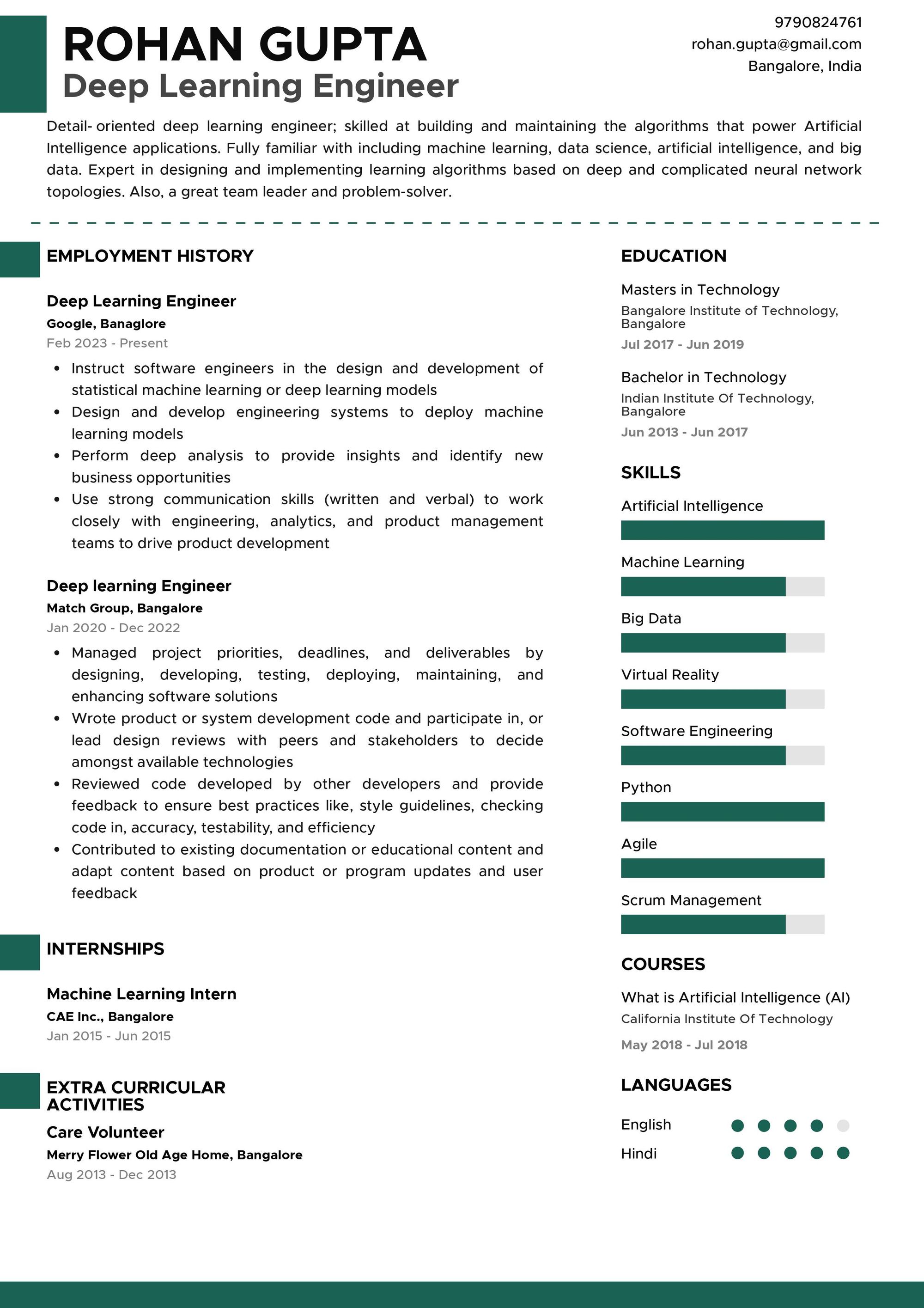
Check the full resume of deep learning engineer in text format here.
Resume of Software Testing Professional with Career Break
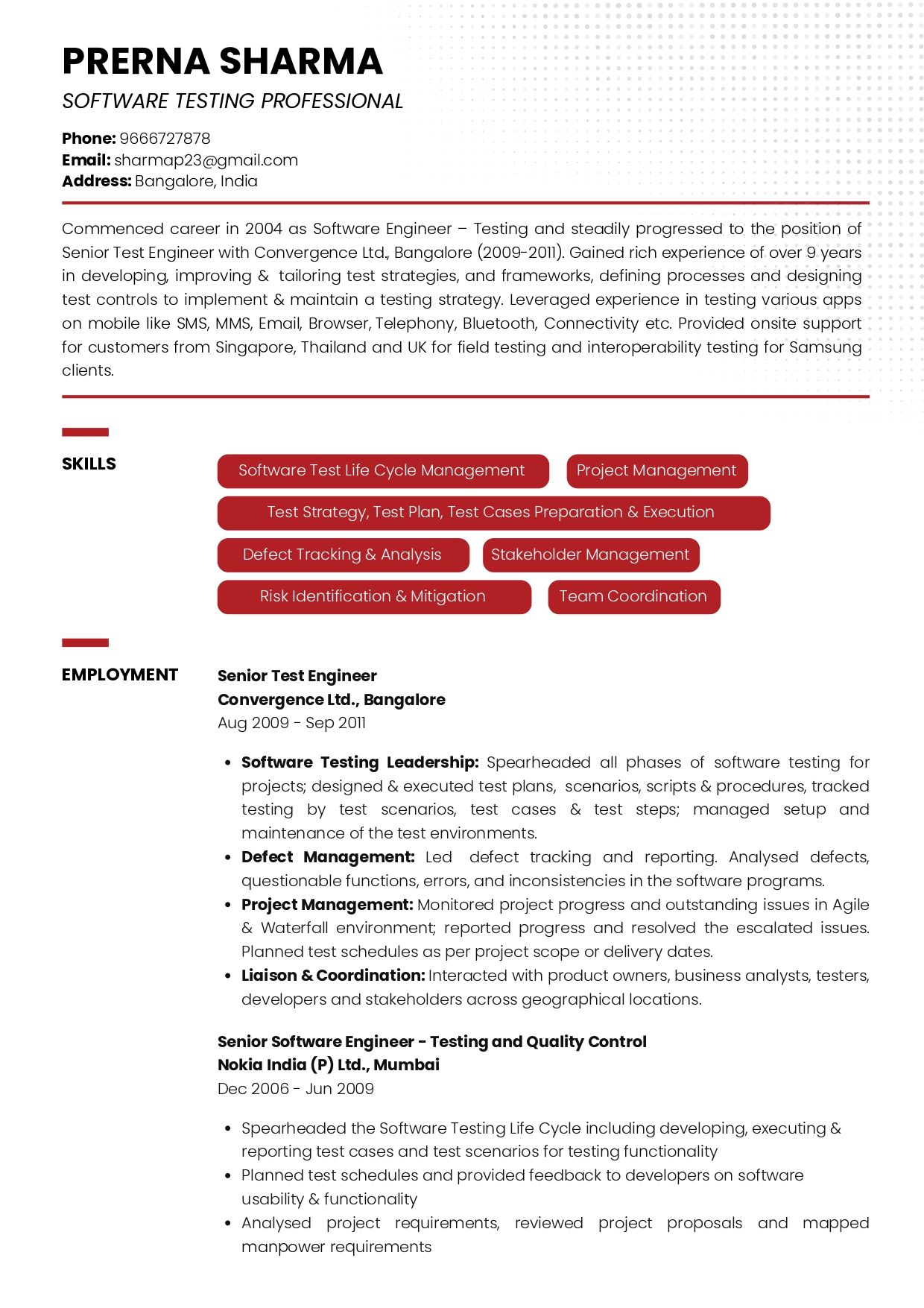
Check the full resume of software testing professional with career break in text format here.
Resume of Computer Programmer
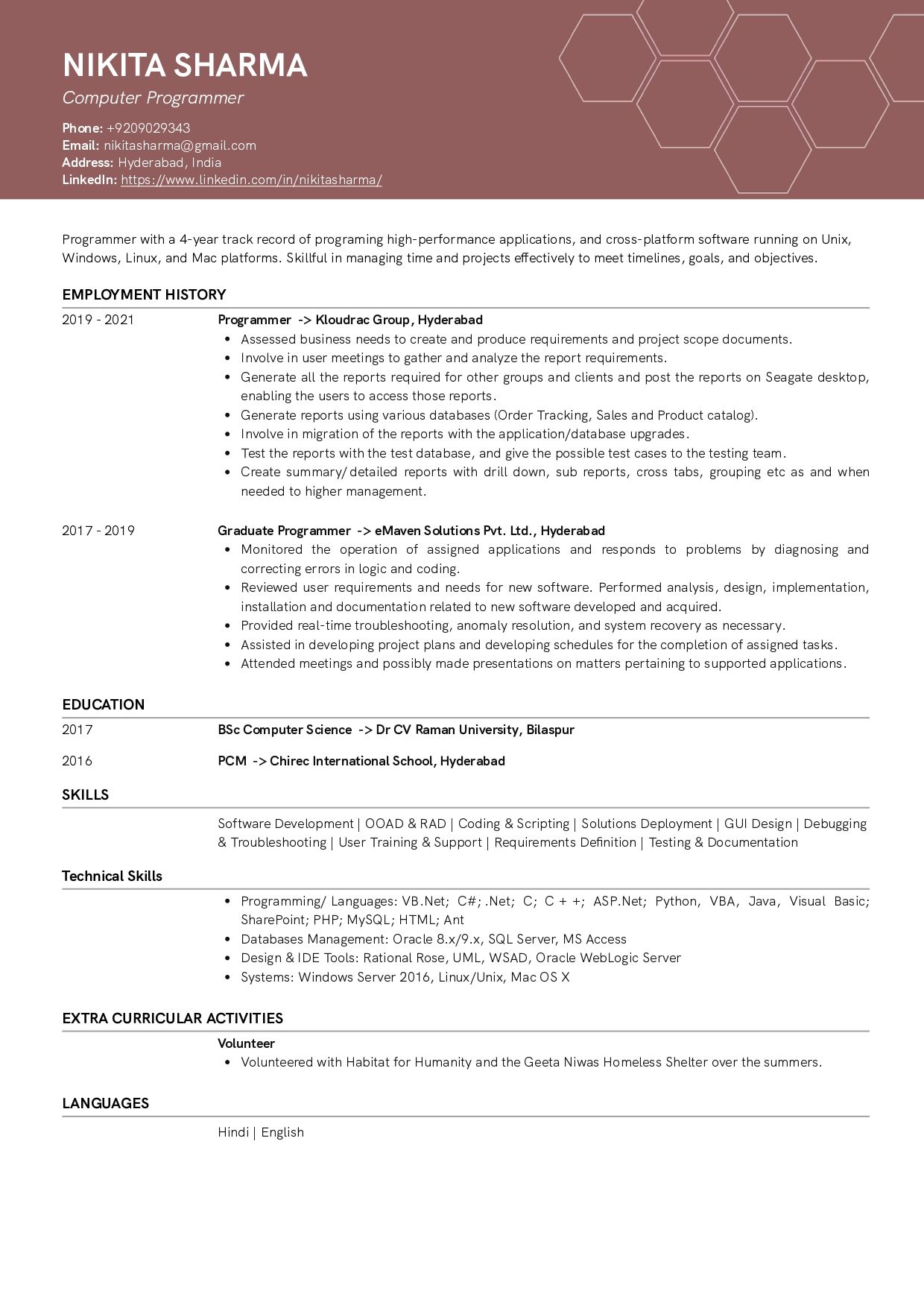
Check the full resume of junior doctor in text format here.
Resume of IT Program Manager
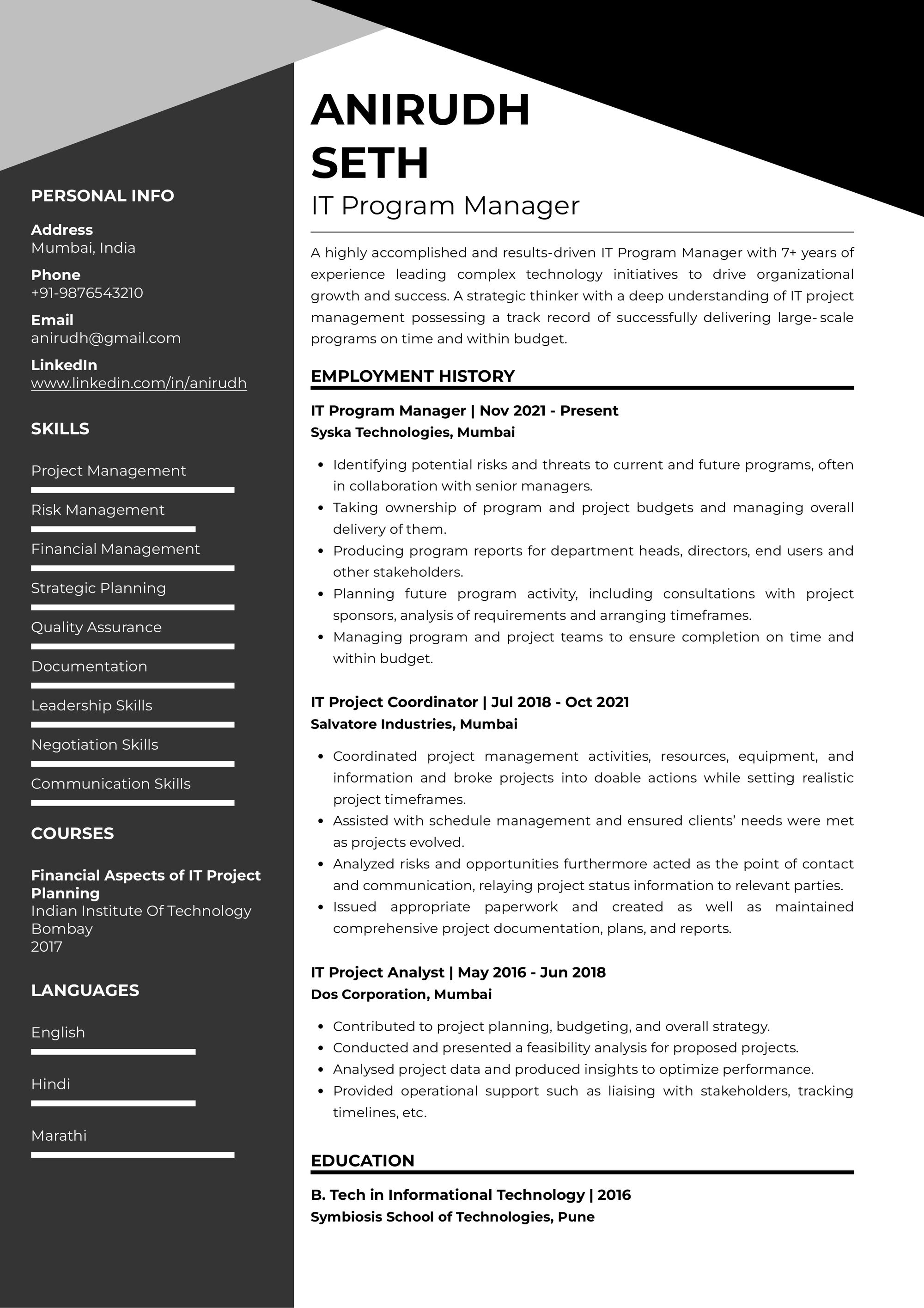
Check the full resume of IT program manager in text format here.
Resume of IT Operations Analyst
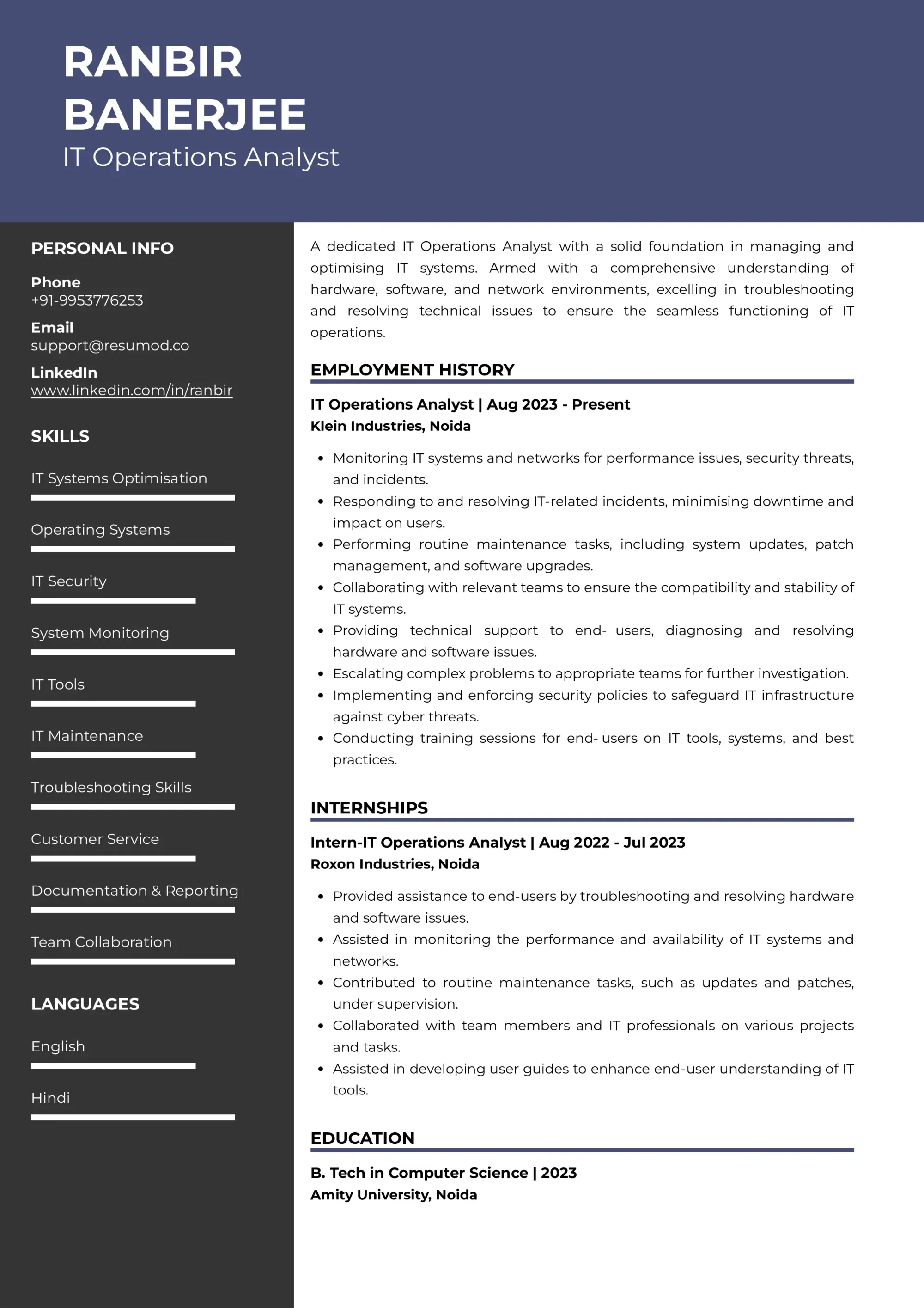
Check the full resume of IT operations analyst in text format here.
Resume of Information Technology Manager
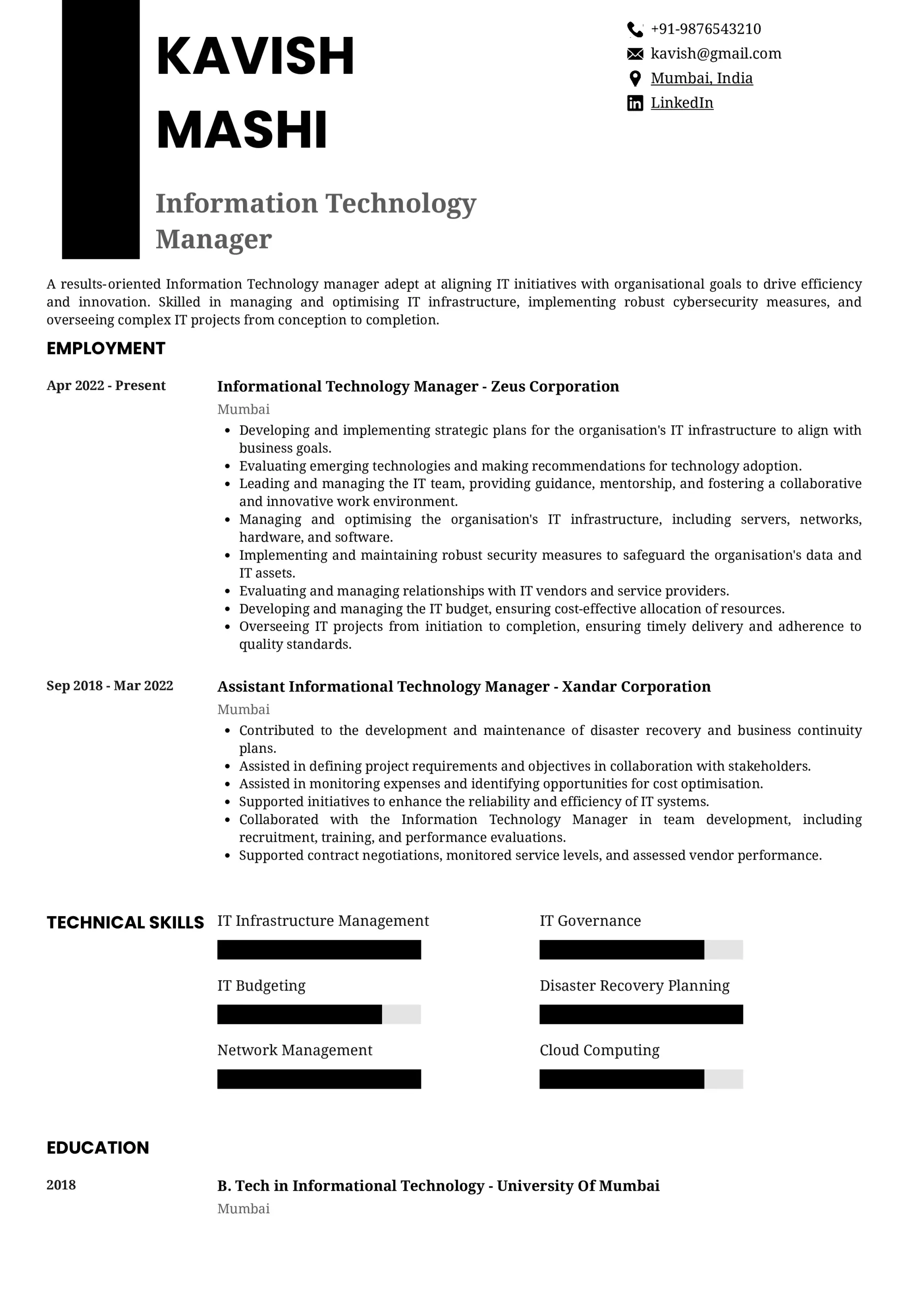
Check the full resume of information technology manager in text format here.
Conclusion
Becoming an Information Technology Specialist is a rewarding career path that offers numerous opportunities for growth and advancement. You can succeed in this dynamic field by following the steps outlined in this guide—earning a degree, becoming proficient with operating systems, learning programming languages, attending boot camps, obtaining certifications, and considering advanced education.
As technology continues to evolve, the demand for skilled IT professionals will only increase, making now an excellent time to pursue a career as an IT specialist. With the right education, skills, and experience, you can become an asset to any organization, helping to drive innovation and improve efficiency in today's digital world.
You can make informed decisions about your education and career development by understanding what an IT specialist does, the skills required, and the various career paths available. Whether you're just starting or looking to advance your current career, the information provided in this guide will help you navigate the path to becoming a successful Information Technology specialist.



